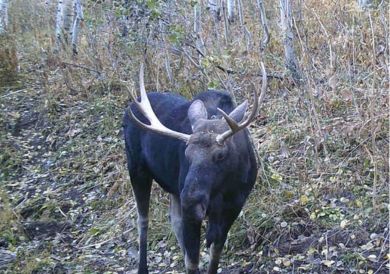The topic of trail camera law is generating increased attention and discussions, with more and more states considering their implementation. A fundamental question that emerges is which state in the USA has the strictest trail camera regulations? Today, we’ll be delving into a comparison between the regulations in Utah and California. By examining the rules these two states have put in place, we aim to shed light on the nuances of their approaches and provide insights into the broader context of trail camera usage regulations.

California Trail Camera Law
Trail camera law in California predominantly revolves around matters related to private property. An individual needs to obtain permission from property owners before setting up trail cameras on private land. Trail camera usage is also prohibited on military bases. This restriction reflects security considerations and underscores the sensitivity surrounding military installations.
The legislative framework in California showcases a concerted effort to balance personal usage, property rights, and security concerns. This approach serves as a model for responsible trail camera usage, ensuring that individuals’ rights are upheld while minimizing any inadvertent consequences.

Utah Trail Camera Law
Utah’s trail camera law share fundamental similarities with those of California. Much like its western counterpart, Utah mandates that individuals acquire consent from landowners prior to installing trail cameras on privately owned property. Furthermore, aligning with California’s approach, the utilization of trail cameras within the confines of military bases is also prohibited in Utah.
However, Utah’s regulations introduce an additional layer of complexity in the form of a designated “trail camera season.” This distinct aspect sets Utah apart from California. During this specified timeframe, spanning from July 31 to December 31 annually, the deployment of trail cameras on public lands is entirely prohibited. It’s noteworthy that private land remains an exception during this trail camera season, enabling individuals to continue using trail cameras on their own property.

Comparison Conclusion
When comparing the two, it’s evident that Utah’s trail camera regulations are notably more strict than those in California. Utah imposes more regulations, including entirely prohibiting camera usage for a substantial part of the year unless individuals own land or secure permission from landowners.
This part of the law seems to be a little fishy. The trail camera law in Utah was originally made so that hunters could not use them to assist in the taking of big game. Since the law has been adjusted, those using cameras on private land do not have any such restrictions. Utah has many large hunting ranches that are the only ones not currently affected by this law. This makes it easier for them to hunt Utah’s big game on these large ranches. Were lawmakers bribed by large companies to take away rights from the people and give it to them to further their business? Why would the Utah government create a law that only benefits the rich and hurts the poor?
Also, if this law was built for hunters, why is the general public banned from using trail cameras on public lands? Is it because the law would be unenforceable due to the general public having trail cameras out making it impossible to know if the cameras are being used for hunting? Does this mean that the government can take away a form of photography from the general public? Has this become a First Amendment problem and not a hunting problem?